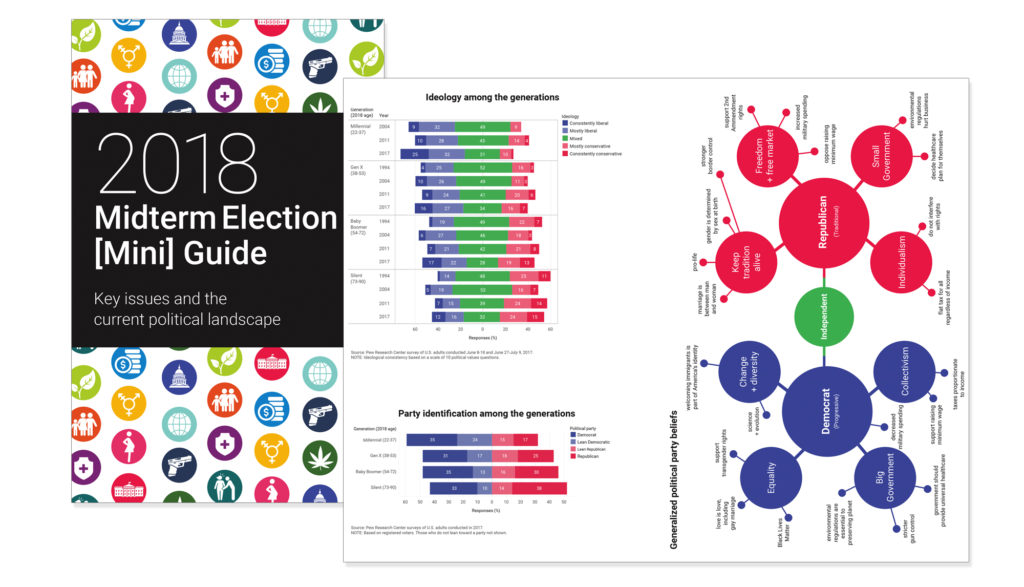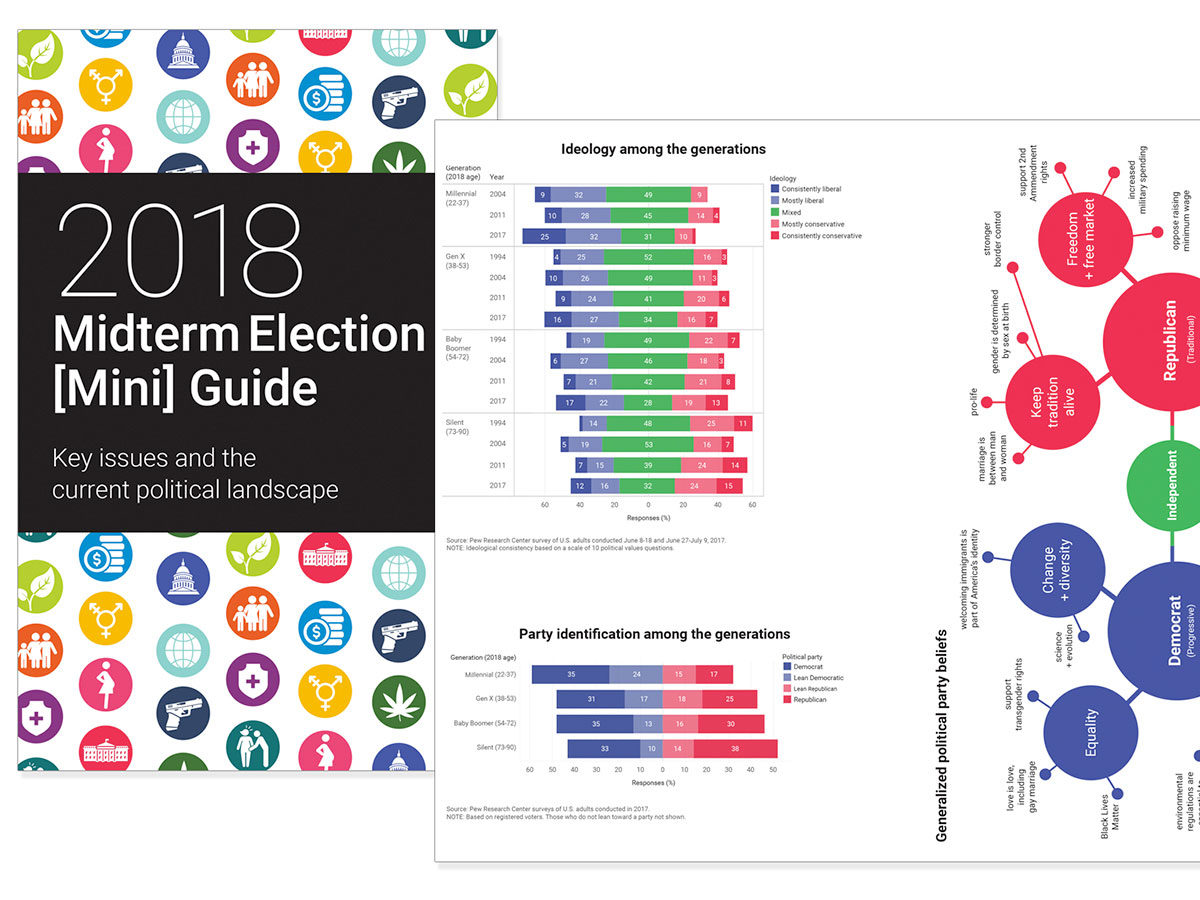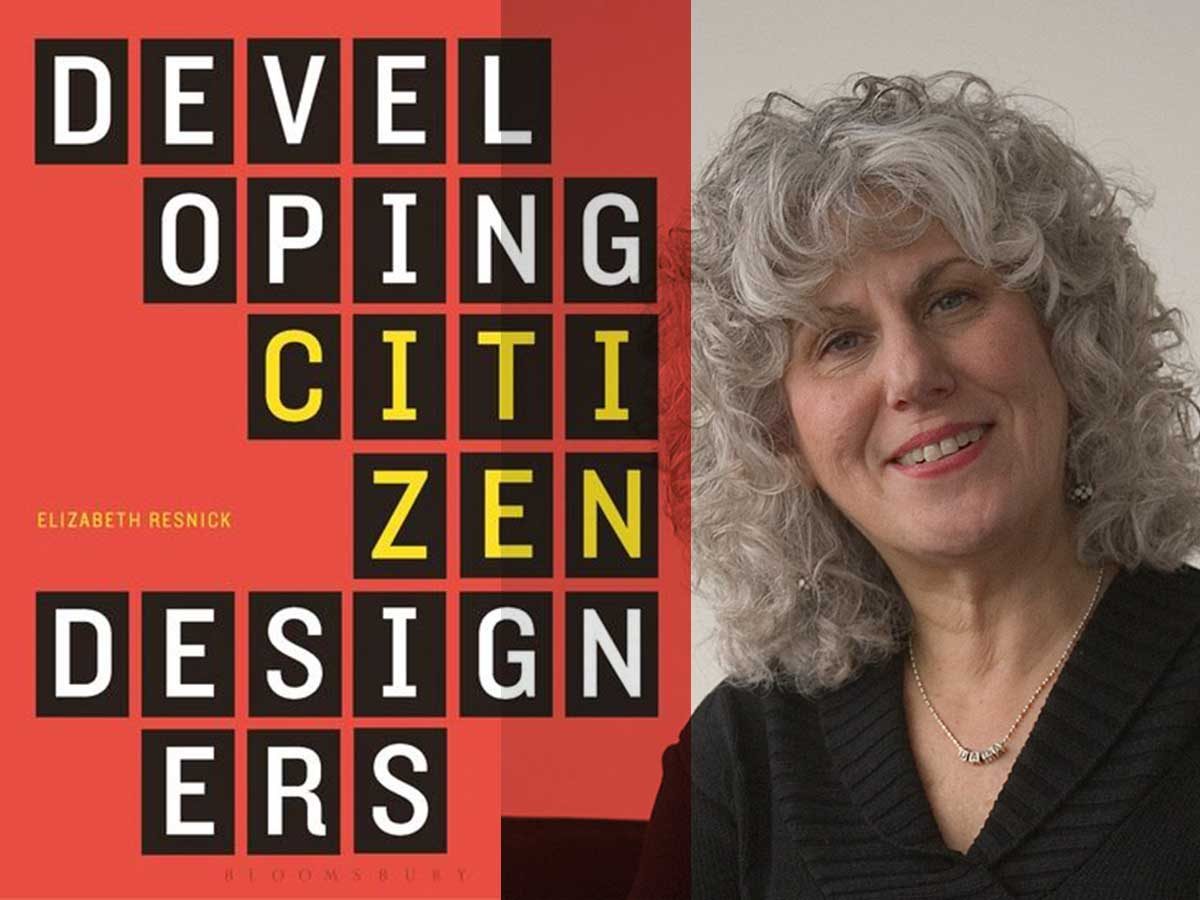Courtney Marchese
Associate Professor
Quinnipiac University
In the summer of 2018, a design student-professor collaboration produced a 100-page Midterm Election Guide, that set out to tackle the lopsided statistic that millennial voters (18-35 years old in 2016) had a nearly 20% lower voter turnout in 2016’s presidential election, as compared to Baby Boomers (53-71) despite having a near equal portion of eligible voters (each about 30%).
The goal of the project was to first identify why Millennials weren’t voting as much as older generations, and ultimately attempt to inspire higher turnout in the local university community. Through an initial survey of college-aged students, the vast majority noted that they do not typically vote because they feel like they don’t know enough about the issues at stake and are not educated on the purpose of midterm elections. They further noted which issues are most important to them, which are the issues that are focused on in this guide: the environment, the economy, immigration, foreign policy, the treatment of minority groups, gun policy, healthcare, and women’s rights. While these issues surfaced as top priorities to millennials, it was evident that these topics resonate across generations.
Data from the internationally-recognized Quinnipiac Polling Institute, Pew Research Center and a variety of government websites, was used to create an organized system of timelines, key terms, and data visuals to help explain today’s complex politic issues and seeks to help young voters understand their demographic significance in today’s society. This presentation describes the effect that the guide had in the 2018 midterms, and looks at the evolving strategy for how it will educate voters in 2020.

This research was presented at the Design Incubation Colloquium 5.3: Merrimack College on March 30, 2019.




